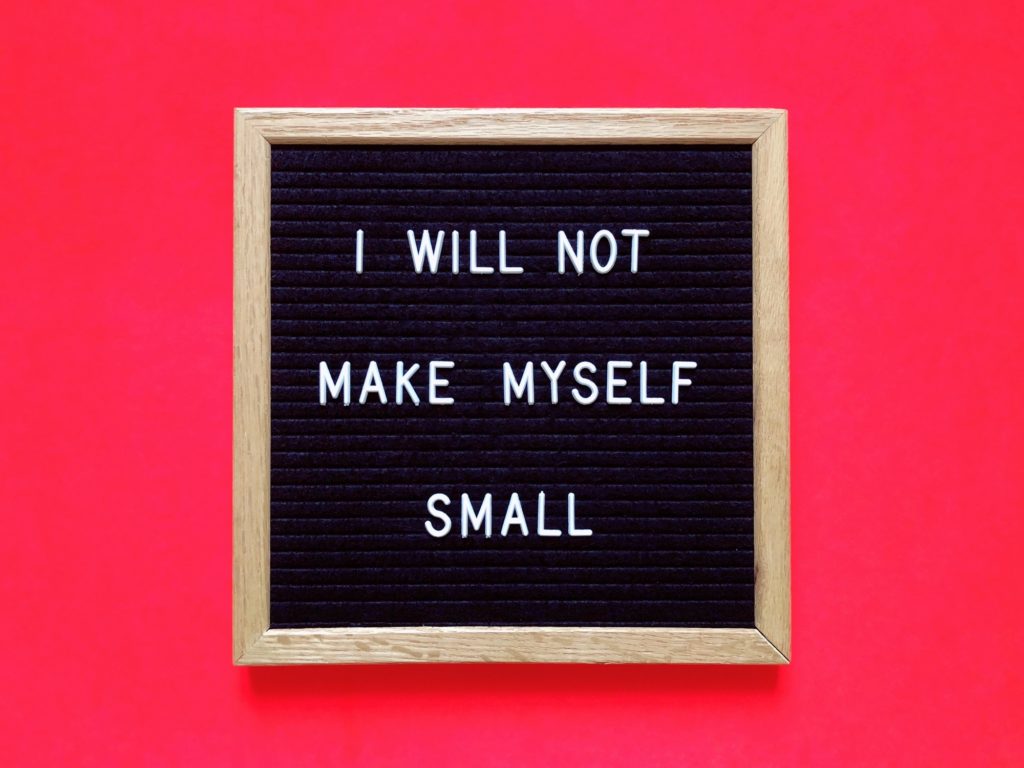Self Esteem is actually how we see ourselves, but is so often linked to how we think others see us. How we take in the information presented to us both internally and externally has a major impact on our self-esteem. Such understanding of what we need to feel good about ourselves, as provided to us by a typological breakdown, can help how best to tackle the issues that arise out of our perceptions. Self-esteem can very easily be dealt with in a type-specific manner. I will break down some of the aspects for you later in this article, because once you know what drives your self-esteem, you will know your buttons and be able to gain control over your emotions.

For those of you who are not familiar on my writings on Typology, I will just clarify the four Temperaments as set out by Myers. If you are unsure about what personality type you are then try this Humanmetrics Test. Typologists, myself included, tend to use these temperament categories to simplify the intricate human condition further into a shallower pool of identities, not because we think everyone fits neatly into four boxes but to point out some commonalities like intrinsic drivers. This is only useful when describing some character traits and is by no means an assertion that there are not added complexities at play in the human psyche. Using Temperaments to describe how we relate to our emotions is a good starting point, but reductionism at any level has its drawbacks. There will always be anomalies but more often than not the classification below will be useful for you.
SP’s – also known as Myers Artisans
SJ’s – also known as Myers Guardians
NF’s – also known as Myers Idealists
NT’s – also known as Myers Rationals
The Artisans tend to feel their best foot is forward when others see them as artistic and graceful exuding a sense of effortless freedom. Therefore when they no longer have the grace or poise be it in a fleeting embarrassing moment or a more serious long-term illness, you will see such character types start to have their self-esteem petals wilt. The fix is the easiest of the four temperaments so help is not far away. The downside is that Artisans tend to be excitable and although can lend an upbeat vibe to those around them with their lively persona, their zest can often be the very cause of a lack of grace or poise momentarily. And, if that doesn’t get the Artisan then the fact that they are also known as the world’s greatest risk-takers (the males more so), a mishap of the type to push the self-esteem destruct button is also just around the corner. Artisan occupations normally revolve around precision, endurance, strength or timing. These are their intrinsic drives to self-worth. If you are an SP and perhaps in a job that does not allow this, your self-esteem could be boosted by taking up a hobby or pastime that helps you display these skills even if only a dance class, workshop, artistic or creative pastime or even an elegant night out. If you have momentarily lost your mojo, seek to increase any activity that plays to your drives and sit back while you effortlessly and gracefully float back up to the top of your game in a cosy self-esteem bubble.
The Guardians on the other hand, as well as caring about how others perceive them, are more about being impeccable with their word and pride themselves on being thought of as dependable and trustworthy. The typical Guardian male is conscientious whether this is seen with extreme diligence in his profession or in his faithful nature as a husband and father. The female too is often referred to as a loyal wife and mother, normally a fastidious homemaker who also is found volunteering her time for the school committee for her children, if she is not working often for a worthy cause. Unfortunately, as so much of the SJ self-esteem comes from the outside this is often a drawback that they need constant reassurance. The Guardian being such a good caregiver no doubt has a strong inner circle of core friends or family. To combat self-esteem issues, it is often useful to turn to such loved ones and ask for help in small ways, something to confirm your worth. Although, this must be used cautiously as external validation should only by acquired in small doses. Perhaps asking your partner to cook you a nice romantic meal or to look after the kids for an hour while you pamper yourself. It is in this moment the SJ needs to use its logical processor and equate that a gift from a non Guardian persona is worth a great boost to their self-esteem as the effort afforded to them is given out of love, care and/or respect. If you are an SJ, remember just occasionally you have to help yourself so you can continue helping others but balance that with maintaining integrity in everything you do. Only take on roles you can succeed at for a while, as dependability is key for you when your self-esteem takes a knock just concentrate on what you can achieve and gradually increase your obligations as your esteem rises.

The Idealists love to philosophise and hold themselves in the highest regard when they are seen as nature’s true empaths. They inherently feel a natural affinity for how others feel, and will often base their self-esteem on how they feel and relate to those closest to them. This can work for a while but as circumstances change or their inner circle respond in unpredictable ways the NF will feel off balance and start to question the relationship, life, their existence and then anything they come into contact with. You can spot an Idealist, as they tend to appear on the surface to only be interested in one close friendship or a select small circle and within those relationships are often heard talking about empathic human relationships. If you fall short of their perception – that self-esteem is related to understanding the human condition – they will see that as a flaw, but more importantly, when they fall short of their expectation, their belief mechanism takes a huge hit and their self-esteem dwindles. Idealists are highly emotional people and their emotions fire off rapidly and then discharge again as rapidly. They do have a good gut feel and pride themselves on this, no doubt this ability comes from the very nature that they are the best type to be able to walk a mile in another’s shoes. If you are an Idealist, then the key to raising your self-esteem is in your own self-awareness and an understanding that no one can be 100% right about every person, change does happen, nothing is personal and everything is OK just the way it is. Take a step back from the overanalysis of feelings and empathy and regain an inner balance momentarily. Yoga, meditation, relaxation exercises are good for this as is an old-fashioned time-out from your daily routine with something that inspires you.
The Rationals are overachievers at the best of times, not content to just have one aspect define their self-esteem are often placing the value of themselves on how inventive they have been and how much they feel they have accomplished. These standards are internally set, which gives them a modicum of control over themselves however such standards are often unrealistic, leading to a lack of self-esteem. The Rationals do not limit themselves to just the play or work arena, they use every avenue as yet another way to grow, improve, develop, teach increasing the proficiency of themselves and others along the way. The problem is that the Rationals are too self-critical compared to the three other categories and sometimes take the hardest hit to their self-esteem, not that you would know it because they will only let a few in on their perceived weakness of being anything less than perfect. NT’s are often found in positions of power and the more senior roles within organisations. They are also referred to as Scientists or Strategists so the I variations will gravitate to these positions while the E variants will take the world head-on, aiming to lead the leaders. Whether an I or an E, this hierarchy follows NT’s into their personal lives too. The problem with being at the top of any pyramid of rank, is that others will either take pleasure in your temporary setback or not have the ability to lend you the hand necessary to take the first step back to feeling good about yourself. So just as the criticism originated from the NT so does the cure, which is to do what you do best and focus back on learning, teaching and growing. If you have been navel-gazing too much then lend a helping hand to someone in need, however if you have been spreading yourself too thin, take time out with a self-help book and start developing another string to your bow.

Whatever type we are, it is clear that all types do suffer the occasional or the more common blow to their self-esteem. The best way to remedy that is…
1. Work out your type, find out what makes you tick be it grace, dependability, empathy or achievement.
2. Write a list of the last 10 things you did that showed this aspect of you to its fullest.
3. Take a brief moment out to smile at all you have already achieved, physiology is half the battle to beating psychology.
4. Make an effort to go and do at least one more thing which will increase that part of you today, committing to do this every day until you feel better about yourself.
5. Take a step back from how you view yourself and how others view you and realise that we are all different. We are all the way we are – which is right for us, just the way we are in that moment.
6. Take a deep breath and think how you will feel about the incident in a minute from now, in a month from now, in a year from now, in ten years from now – how important is the perceived ‘mistake’ that just hit your self-esteem.
7. Accept yourself and gain a fresh perspective. Realise that it really isn’t as bad as you originally thought, then just let that feeling go and move on.


